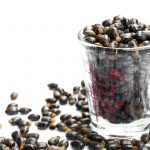The Leaky Gut/Allergy Catch-22: Underlying Trigger for Myriad Health Concerns
Tolle Totum
Chris D. Meletis, ND
Increased intestinal permeability – otherwise known as leaky gut – is associated with a surprising number of health concerns, including seasonal allergies, autoimmune disorders (eg, rheumatoid arthritis), migraines, depression, and Alzheimer’s, among others that I will address later in this article. Athletes and postmenopausal women are also susceptible to impaired intestinal permeability. Yet, unless patients with these conditions have comorbid gastrointestinal (GI) issues, they often are not tested for leaky gut or the associated food sensitivities that serve as a red flag for the presence of increased intestinal permeability. In this article, I will discuss the link between leaky gut and food allergies/sensitivities, as well as how this correlation may contribute to the pathogenesis or progression of a number of diseases. My clinical philosophy is to test patients when allergens and sensitivities are suspected, to help ensure that the food they are consuming is indeed “Good Medicine and Does no Harm.”
Leaky Gut: How & Why It Occurs
The intestinal epithelial lining and factors secreted from it serve as a barrier to prevent the passage of toxins, antigens, and bacteria in the lumen from entering the bloodstream while also allowing for optimal nutrient absorption. When this barrier is compromised, leaky gut results. The foundation of this barrier consists of only a single layer of specialized epithelial cells joined by tight-junction proteins. However, additional factors are involved in intestinal barrier support, including mucins, antimicrobial molecules, secretory IgA (sIgA), and cytokines.1
The most abundant immunoglobulin in the body, sIgA is found on intestinal mucosal surfaces where it interacts with commensal bacteria to protect against pathogens, toxins, and other irritants. Every day, the human body synthesizes and deposits approximately 3 grams of sIgA into the intestinal lumen.2 Although other aspects of gut barrier function can sometimes compensate for a decline in sIgA,2 optimal levels of this immunoglobulin are important for gut health. Secretory IgA is also secreted in other mucous membranes, such as in the oral cavity, where it protects against viral, bacterial, and parasitic assaults. In the intestinal tract, sIgA is secreted when there is an immune reaction to foods.3
While underproduction of sIgA can result in impaired gut-barrier function (and increased intestinal permeability), dysregulation of zonulin, a physiological modulator of intercellular tight junctions, also poses a threat to gut barrier integrity.4 Zonulin plays a role in intestinal innate immunity.4 It is upregulated in animal- and human-derived intestinal epithelial cells exposed to the wheat protein gliadin, impairing gut barrier function and increasing intestinal permeability by weakening tight junctions.5-7
Zonulin upregulation also is linked to increased intestinal permeability in people with type 1 diabetes and their relatives.8 Interestingly, in these subjects zonulin upregulation occurs before disease development, pointing to an interplay between increased intestinal permeability, environmental exposure to non-self antigens, and the pathogenesis of autoimmunity in people who are genetically susceptible to it.8
Factors contributing to the disruptions in intestinal integrity responsible for leaky gut include food sensitivities/allergies, exposure to environmental toxins, chronic psychological stress, a diet high in sugar and processed foods, alcohol abuse, antibiotics, and anything that results in dysbiosis of the gut microbiota. These factors can all act together to compromise gut barrier function. Athletes are also susceptible to increased intestinal permeability and associated GI problems.9 Other factors that may predispose to the development of leaky gut include consuming a low-fiber or high-fat diet.10,11
Clinically, I routinely consider supplementation of glutamine and mitochondrial support for athletes that present with either decreased performance or increased GI or allergic symptoms. I find that increased intestinal permeability arising from relative depletion of glutamine, that is normally used for muscle, immune and gut integrity, is often a key clinical consideration. Additionally, subclinical mitochondrial dysfunction may contribute to some athletes manifesting with intestinal permeability changes and decreased exertional performance.
The Catch-22 of Leaky Gut
As discussed, many factors can lead to leaky gut. However, intestinal permeability can also cause those same factors, to begin with, or make them worse, leading to a vicious cycle. For example, dysbiosis of the gut microbiota contributes to leaky gut.12,13 Intestinal microbiota assist with the production of short-chain fatty acids (SCFAs), which provide fuel for colonocytes and are important for gut health.14 At the same time that dysbiosis of the microbiota can result in leaky gut, increased intestinal permeability can exacerbate the imbalance in gut microbiota by encouraging microbial translocation into the systemic circulation and by inducing an inflammatory state,15 which is associated with dysbiosis.16
Likewise, there is a bidirectional interplay between food allergies/sensitivities and leaky gut, which is why I employ IgG/IgA testing for food allergies/intolerances in patients at risk for leaky gut. Impaired gut barrier function leading to leaky gut is involved in the development of food allergies/intolerances. This occurs when increased intestinal permeability allows undigested food particles to translocate into the bloodstream, where the immune system launches an assault on what it perceives to be a foreign, harmful substance. Conversely, food allergies/sensitivities can play a role in the etiology of intestinal permeability.17 As I noted earlier in this article, exposure to food components such as gliadin upregulates zonulin. This ability to upregulate zonulin is an indication that food antigens are involved in tight-junction dysfunction.
Leaky gut can lead to deficiencies of nutrients such as zinc,18 vitamin A,19 iron,19 and calcium,20 creating another vicious cycle whereby intestinal permeability interferes with the absorption of nutrients and lack of nutrients weaken gut function.18,20,21,22
Associated Health Conditions
An abundance of evidence has found that leaky gut is associated with a number of health conditions. There is also evidence that food allergies or sensitivities may be involved in the pathogenesis of many of these conditions or exacerbate the disorders in a manner that involves intestinal permeability. Moreover, I have observed in my clinical practice that testing for IgA/IgG food sensitivities and then implementing an elimination diet based on the offending foods has resulted in improvements in autoimmune disorders, mental health, and seasonal allergies.
Seasonal Allergies, Atopy & the Gut
The connection between allergic diseases and the gut has been demonstrated in a number of studies. Gnotobiotic (germ-free) mice and animals treated with antibiotics were unusually susceptible to peanut sensitization, characterized by increased peanut-specific IgE and anaphylactic symptoms with peanut challenge.23 However, antibiotic-treated mice colonized with a Clostridia-enriched microbiota, which is known to influence colonic immunity, were protected against food allergies through a mechanism involving intestinal barrier function.23 Further adding to the evidence of an association between allergies and gut health are a number of human studies demonstrating that supplementation with probiotics can mitigate allergic rhinitis or atopic disease.24-26
A common occurrence in people with allergic rhinitis, known as oral allergy syndrome, also underscores the link between allergic diseases and the gut. This syndrome is characterized by a cross-reactivity to certain foods in people who are allergic to pollen from birch trees, ragweed, and grass. For example, patients allergic to grass pollen may also often react to peaches, oranges, celery, tomatoes, and melons, while ragweed allergy patients often react to melon, cucumber, banana, and zucchini.27 Some estimates indicate that as many as 70% of people who are allergic to birch pollen also have allergenic reactions after eating raw fruits.28,29 Given the contribution of food allergies/intolerances to leaky gut, it is possible that these cross-reactivities may impair gut barrier function in people with seasonal allergies or atopic disease.
Autoimmune Diseases
A leaky gut can promote the initiation and progression of autoimmune disease, especially in people who are genetically predisposed.1 Autoimmune diseases known to be associated with increased intestinal permeability include inflammatory bowel disease, celiac disease, autoimmune hepatitis, type 1 diabetes mellitus, multiple sclerosis, and systemic lupus erythematosus (SLE).30-34 In type 1 diabetes, impaired intestinal barrier function has been shown to occur before the onset of the disease,1,35 indicating that it may play a role in the pathogenesis. Moreover, lipopolysaccharide (LPS), a cell wall component of gram-negative bacteria, can penetrate the intestinal epithelium and translocate into tissues, triggering the development and progression of SLE.36 The resolution of intestinal permeability through the use of probiotic organisms is a promising approach to supporting the health of people with autoimmune diseases.1
Depression
Preliminary evidence suggests that intestinal permeability associated with IgG-dependent food sensitivity correlates with the etiology of depression. Overproduction of zonulin, suspected to be triggered by the wheat protein gliadin, leads to impairments in the tight-junction barrier and an increase in intestinal permeability.37 This is thought to permit translocation of larger molecules into the bloodstream, resulting in IgG-dependent food sensitivity and an associated immune response. This may include the synthesis of proinflammatory cytokines, which could promote the development of depressive symptoms.37
This correlation between mood and leaky gut was demonstrated in a study of human patients with severe depression. In this study, researchers compared the serum concentrations of IgM and IgA against LPS of gram-negative enterobacteria in patients with major depression with those in normal controls.38 Serum IgM and IgA against LPS of enterobacteria were significantly greater in patients with major depression compared to the controls, suggesting increased translocation of LPS from gram-negative bacteria in the depressed patients.
Autism
A correlation between leaky gut and autism spectrum disorder (ASD) is supported by studies showing increased levels of zonulin in patients with autism compared to controls.39 Furthermore, gastrointestinal abnormalities, including increased intestinal permeability and dysbiosis of the gut microbiota, occur frequently in autistic children.40 Among biopsy specimens derived from the duodenum of 12 ASD and 9 control patients, 75% of the ASD samples analyzed were characterized by lower expression of tight-junction components, indicating an impaired intestinal barrier.41 ASD is also associated with intolerance to the dietary proteins gliadin, cow’s milk protein, and soy, as indicated by an abnormal innate immune response against the endotoxin LPS.42
Other Conditions Related to Leaky Gut
Metabolic syndrome is another disorder linked to increased intestinal permeability. In a study of 363 individuals, higher zonulin levels correlated with higher waist circumference, diastolic blood pressure, and glucose concentrations, as well as a greater likelihood of being overweight or obese and having hyperlipidemia.43 Leaky gut and associated bacterial translocation also have been implicated in Alzheimer’s disease.44 Postmenopausal women are also at risk of impaired gut barrier function, since estrogen naturally protects the intestinal mucous layer against oxidative damage and reduces intestinal permeability.45 Moreover, low levels of sex steroids in mice have been shown to increase intestinal permeability, which is involved in inflammatory pathways that cause bone loss.46 Nephropathy is another condition associated with intestinal permeability as well as the production of IgA-type antibodies against gliadin, soy, salt-extracted antigens of oat flour (HAV), and ovalbumin.47
Likewise, increased intestinal permeability and the resulting translocation of endotoxins into the bloodstream are implicated in migraines.48,49 Given the association between leaky gut and migraines, it’s not surprising that both IgE-specific food allergies and IgG-mediated food intolerances have been found to aggravate migraine attacks, while an elimination diet reduces headache frequency.50,51
The Critical Importance of Testing
Based on the number of health conditions related to leaky gut and the association between food allergies/sensitivities and increased intestinal permeability, IgA/IgG/IgE testing for food sensitivities is underutilized. The goal is to test patients in any of the high-risk groups mentioned in this article for food allergies/sensitivities and to then focus on eliminating the offending foods while simultaneously supporting gut healing through supplementation with L-glutamine, probiotics, and other relevant nutraceuticals. After 6 months on the supplements and the elimination diet, I then retest patients for food allergies/sensitivities. Once the leaky gut is fixed, many allergic and autoimmune burdens should lessen. As I convey to my patients, if we are not testing we are guessing. Even the most theoretically advantageous food, such as avocado or beets, can be detrimental, as I have observed countless times once I have tested patients for food sensitivities or overt allergies.
References:
- Qinghui M, Kirby J, Reilly CM, Luo XM. Leaky Gut As a Danger Signal for Autoimmune Diseases. Front Immunol. 2017:8:598.
- Wells JM,Brummer RJ, Derrien M, et al. Homeostasis of the gut barrier and potential biomarkers. Am J Physiol Gastrointest Liver Physiol. 2017;312(3):G171-G193.
- Ferguson A. Mechanisms in adverse reactions tofood. The gastrointestinal tract. Allergy. 1995;50(20 Suppl):32-38.
- El Asmar R,Panigrahi P, Bamford P, et al. Host-dependent zonulin secretion causes the impairment of the small intestine barrier function after bacterial exposure. Gastroenterology. 2002;123(5):1607-1615.
- Clemente MG,De Virgiliis S, Kang JS, et al. Early effects of gliadin on enterocyte intracellular signalling involved in intestinal barrier function. Gut. 2003;52(2):218-223.
- Drago S,El Asmar R, Di Pierro M, et al. Gliadin, zonulin and gut permeability: Effects on celiac and non-celiac intestinal mucosa and intestinal cell lines. Scand J Gastroenterol. 2006;41(4):408-419.
- Fasano A, Not T, Wang W, et al. Zonul
- in, a newly discovered modulator of intestinal permeability, and its expression in coeliac disease. Lancet. 2000;355(9214):1518-1519.
- Sapone A,de Magistris L, Pietzak M, et al. Zonulin upregulation is associated with increased gut permeability in subjects with type 1 diabetes and their relatives. Diabetes. 2006;55(5):1443-1449.
- Lamprecht M,Frauwallner A. Exercise, intestinal barrier dysfunction and probiotic supplementation. Med Sport Sci. 2012;59:47-56.
- Desai MS,Seekatz AM, Koropatkin NM, et al. A Dietary Fiber-Deprived Gut Microbiota Degrades the Colonic Mucus Barrier and Enhances Pathogen Susceptibility. Cell. 2016;167(5):1339-1353.e21.
- Lam YY,Ha CW, Campbell CR, et al. Increased gut permeability and microbiota change associate with mesenteric fat inflammation and metabolic dysfunction in diet-induced obese mice. PLoS One. 2012;7(3):e34233.
- Sun J,Chang EB. Exploring gut microbes in human health and disease: Pushing the envelope. Genes Dis. 2014;1(2):132-139.
- Karl JP, Margolis LM, Madslien EH, et al. Changes in intestinal microbiota composition and metabolism coincide with increased intestinal permeability in young adults under prolonged physiological stress. Am J Physiol Gastrointest Liver Physiol. 2017;312(6):G559-G571.
- Rowin J, Xia Y, Jung B, Sun J. Gut inflammation and dysbiosis in human motor neuron disease. Physiol Rep.2017;5(18). pii: e13443.
- Nagpal R,Yadav H. Bacterial Translocation from the Gut to the Distant Organs: An Overview. Ann Nutr Metab. 2017;71 Suppl 1:11-16.
- Stecher B. The Roles of Inflammation, Nutrient Availability and the Commensal Microbiota in Enteric Pathogen Infection. Microbiol Spectr.2015;3(3).
- Sazanova NE,Varnacheva LN, Novikova AV, Pletneva NB. Immunological aspects of food intolerance in children during first years of life. [Article in Russian] Pediatriia.1992;(3):14-18.
- Zhong W,Li Q, Sun Q, et al. Preventing Gut Leakiness and Endotoxemia Contributes to the Protective Effect of Zinc on Alcohol-Induced Steatohepatitis in Rats. Nutr. 2015;145(12):2690-2698.
- Hossain MI,Haque R, Mondal D, et al. Undernutrition, Vitamin A and Iron Deficiency Are Associated with Impaired Intestinal Mucosal Permeability in Young Bangladeshi Children Assessed by Lactulose/Mannitol Test. PLoS One. 2016;11(12):e0164447.
- Fujita H,Sugimoto K, Inatomi S, et al. Tight junction proteins claudin-2 and -12 are critical for vitamin D-dependent Ca2+ absorption between enterocytes. Mol Biol Cell. 2008;19(5):1912-1921.
- Kanhere M, Chassaing B, Gewirtz AT, Tangpricha V. Role of vitamin D on gut microbiota in cystic fibrosis. J Steroid Biochem Mol Biol.2018;175:82-87.
- Assa A, Vong L, Pinnell LJ, et al. Vitamin D deficiency promotes epithelial barrier dysfunction and intestinal inflammation. J Infect Dis. 2014;210(8):1296-1305.
- Stefka AT, Feehley T, Tripathi P, et al. Commensal bacteria protect against food allergen sensitization. Proc Natl Acad Sci U S A. 2014;111(36):13145-13150.
- Zuccotti G,Meneghin F, Aceti A, et al. Probiotics for prevention of atopic diseases in infants: systematic review and meta-analysis. Allergy. 2015;70(11):1356-1371.
- Nogueira JC,Gonçalves Mda C. Probiotics in allergic rhinitis. [Article in Portuguese] Braz J Otorhinolaryngol. 2011;77(1):129-134.
- Jewell DP,Truelove SC. Reaginic hypersensitivity in ulcerative colitis. Gut. 1972;13(11):903-906.
- Muluk NB,Cingi C. Oral allergy syndrome. Am J Rhinol Allergy. 2018;32(1):27-30.
- Hofmann A,Burks AW. Pollen food syndrome: update on the allergens. Curr Allergy Asthma Rep. 2008;8(5):413-417.
- Wang J,Vanga SK, Raghavan V. Effect of pre-harvest and post-harvest conditions on the fruit allergenicity: A review. Crit Rev Food Sci Nutr. 2017 Oct 11:1-17. [Epub ahead of print]
- Lin R,Zhou L, Zhang J, Wang B. Abnormal intestinal permeability and microbiota in patients with autoimmune hepatitis. Int J Clin Exp Pathol. 2015;8(5):5153-5160.
- Khaleghi S,Ju JM, Lamba A, Murray JA. The potential utility of tight junction regulation in celiac disease: focus on larazotide acetate. Therap Adv Gastroenterol. 2016;9(1):37-49.
- Fasano A,Shea-Donohue T. Mechanisms of disease: the role of intestinal barrier function in the pathogenesis of gastrointestinal autoimmune diseases. Nat Clin Pract Gastroenterol Hepatol. 2005;2(9):416-422.
- Tlaskalová-Hogenová H,Stěpánková R, Kozáková H, et al. The role of gut microbiota (commensal bacteria) and the mucosal barrier in the pathogenesis of inflammatory and autoimmune diseases and cancer: contribution of germ-free and gnotobiotic animal models of human diseases. Cell Mol Immunol. 2011;8(2):110-120.
- Fasano A. Zonulin, regulation of tight junctions, and autoimmune diseases. Ann N Y Acad Sci.2012;1258:25-33.
- Meddings JB, Jarand J, Urbanski SJ, et al. Increased gastrointestinal permeability is an early lesion in the spontaneously diabetic BB rat. Am J Physiol. 1999;276(4 Pt 1):G951-G957.
- Mu Q,Zhang H, Luo XM. SLE: Another Autoimmune Disorder Influenced by Microbes and Diet? Front Immunol. 2015;6:608.
- Karakuła-Juchnowicz H, Szachta P, Opolska A, et al. The role of IgG hypersensitivity in the pathogenesis and therapy of depressive disorders. Nutr Neurosci.2017;20(2):110-118.
- Maes M,Kubera M, Leunis JC. The gut-brain barrier in major depression: intestinal mucosal dysfunction with an increased translocation of LPS from gram negative enterobacteria (leaky gut) plays a role in the inflammatory pathophysiology of depression. Neuro Endocrinol Lett. 2008;29(1):117-124.
- Esnafoglu E,Cırrık S, Ayyıldız SN, et al. Increased Serum Zonulin Levels as an Intestinal Permeability Marker in Autistic J Pediatr. 2017;188:240-244.
- Wasilewska J,Jarocka-Cyrta E, Kaczmarski M. Gastrointestinal abnormalities in children with autism. [Article in Polish] Pol Merkur Lekarski. 2009;27(157):40-43.
- Fiorentino M,Sapone A, Senger S, et al. Blood-brain barrier and intestinal epithelial barrier alterations in autism spectrum disorders. Mol Autism. 2016;7:49.
- Jyonouchi H,Sun S, Itokazu N. Innate immunity associated with inflammatory responses and cytokine production against common dietary proteins in patients with autism spectrum disorder. Neuropsychobiology. 2002;46(2):76-84.
- Ohlsson B,Orho-Melander M, Nilsson PM. Higher Levels of Serum Zonulin May Rather Be Associated with Increased Risk of Obesity and Hyperlipidemia, Than with Gastrointestinal Symptoms or Disease Manifestations. Int J Mol Sci. 2017;18(3). pii:E582.
- Köhler CA,Maes M, Slyepchenko A, et al. The Gut-Brain Axis, Including the Microbiome, Leaky Gut and Bacterial Translocation: Mechanisms and Pathophysiological Role in Alzheimer’s Disease. Curr Pharm Des. 2016;22(40):6152-6166.
- Diebel ME,Diebel LN, Manke CW, Liberati DM. Estrogen modulates intestinal mucus physiochemical properties and protects against oxidant injury. J Trauma Acute Care Surg. 2015;78(1):94-99.
- Li JY,Chassaing B, Tyagi AM, et al. Sex steroid deficiency-associated bone loss is microbiota dependent and prevented by probiotics. J Clin Invest. 2016;126(6):2049-2063.
- Kovács T, Mette H, Per B, et al. Relationship between intestinal permeability and antibodies against food antigens in IgA nephropathy. [Article in Hungarian] Orv Hetil. 1996;137(2):65-69.
- de Roos NM,van Hemert S, Rovers JMP, et al. The effects of a multispecies probiotic on migraine and markers of intestinal permeability-results of a randomized placebo-controlled study. Eur J Clin Nutr. 2017;71(12):1455-1462.
- Dai YJ,Wang HY, Wang XJ, et al. Potential Beneficial Effects of Probiotics on Human Migraine Headache: A Literature Review. Pain Physician. 2017;20(2):E251-E255.
- Mansfield LE,Vaughan TR, Waller SF, et al. Food allergy and adult migraine: double-blind and mediator confirmation of an allergic etiology. Ann Allergy. 1985;55(2):126-129.
- Alpay K,Ertas M, Orhan EK, et al. Diet restriction in migraine, based on IgG against foods: a clinical double-blind, randomised, cross-over trial. Cephalalgia. 2010;30(7):829-837.
Image Copyright: <a href=’https://www.123rf.com/profile_greenvector’>greenvector / 123RF Stock Photo</a>
 Chris D. Meletis, ND, is an educator, international author, and lecturer, and has been in clinical practice since 1992. Dr Meletis served as Dean and CMO of National University of Natural Medicine (NUNM) from 1996 to 2003. He has authored 16 books and 200 national articles. Dr Meletis is also a consultant to the nutraceutical and laboratory industry. Currently, he serves an independent educator for US BioTek Laboratories. Website: www.DrMeletis.com
Chris D. Meletis, ND, is an educator, international author, and lecturer, and has been in clinical practice since 1992. Dr Meletis served as Dean and CMO of National University of Natural Medicine (NUNM) from 1996 to 2003. He has authored 16 books and 200 national articles. Dr Meletis is also a consultant to the nutraceutical and laboratory industry. Currently, he serves an independent educator for US BioTek Laboratories. Website: www.DrMeletis.com










